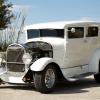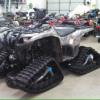I recently spoke with a friend of mine who owns a large general repair shop in the Midwest. His father founded the business in 1975. He was telling me that although he’s busy, he’s also very frustrated. When I probed him more about his frustrations, he said that it’s hard to find qualified technicians. My friend employs four technicians and is looking to hire two more. I then asked him, “How long does a technician last working for you.” He looked puzzled and replied, “I never really thought about that, but I can tell that except for one tech, most technicians don’t last working for me longer than a few years.”
Judging from personal experience as a shop owner and from what I know about the auto repair industry, I can tell you that other than a few exceptions, the turnover rate for technicians in our industry is too high. This makes me think, do we have a technician shortage or a retention problem? Have we done the best we can over the decades to provide great pay plans, benefits packages, great work environments, and the right culture to ensure that the techs we have stay with us?
Finding and hiring qualified automotive technicians is not a new phenomenon. This problem has been around for as long as I can remember. While we do need to attract people to our industry and provide the necessary training and mentorship, we also need to focus on retention. Having a revolving door and needing to hire techs every few years or so costs your company money. Big money! And that revolving door may be a sign of an even bigger issue: poor leadership, and poor employee management skills.
Here’s one more thing to consider, for the most part, technicians don’t leave one job to start a new career, they leave one shop as a technician to become a technician at another shop. The reasons why they leave can be debated, but there is one fact that we cannot deny, people don’t quit the company they work for, they usually leave because of the boss or manager they work for.
Put yourselves in the shoes of your employees. Do you have a workplace that communicates, “We appreciate you and want you to stay!”















.thumb.jpg.2b345efc275b9df0af2bbb306a10a78a.jpg)










Recommended Posts
alfredauto
Az sells rolls of copper brake line now. I was taught its a no-go, but the sales guy says its dot approved. I'll stick with coated steel.
Link to comment
Share on other sites
skm
Here it is illegal any copper it is too soft, even if it is dot approved just like the hyper white (blue hued) headlights they are dot approved . Here it is what ever your car came with has to be there (factory). Of course every time you get a different state trooper they change they way they want thing done, We have a box to check for fog or aux lighting and aim, I cross the box off if the car does not have fog lights. The new trooper said all cars have aux lights I argued with him saying aux lights are exterior additional lighting like baha lights etc. He said " what about the dome light" I asked him how you check the height and aim of it he just looked at me, then I asked him "isn't it illegal to drive at night with your dome light on' ? he said yes so how could it be an aux light? He wants it checked LOL.. He also wanted us to write down the tire size and temp/speed rating of the tire. I asked him what kind of sense does that make you can't fail a tire for a different rating. If you fail a tire cause it is bad they get a new tire and it is not the same temp rating you can't fail it. He replied that is correct, okay so why do need to write it down? no reply. AS long as they are the same size on the axle and not deviated by more than 1 size per axle it is fine he agreed but still wants the tire size . It is a royal pain in the ass
Edited by skmLink to comment
Share on other sites
alfredauto
In NY a person can legally pass inspection, get a sticker, and get ticketed by a cop for equipment violations as soon as they pull out of the driveway. Its really rediculous the traffic code and vehicle safety regulations don't match.
For example, there is no fail item for exhaust. It is not checked except for the presence of a catalytic converter. But a loose gas cap will sideline that vehicle.
Link to comment
Share on other sites
CMillet86
The Brake line that Autozone and Advance sells isn't a pure copper, it's a Nickel copper mix. I believe some of the european manufactures use it standard.
Link to comment
Share on other sites
ncautoshop
Sent from my SM-N910V using Tapatalk
Link to comment
Share on other sites
CMillet86
Much easier to work with also.
Link to comment
Share on other sites
ncautoshop
Once you bend and flare nicopp once you'll never use steel again!
Sent from my SM-N910V using Tapatalk
Link to comment
Share on other sites
skm
well easiest isn't always the best way.. It may be fine, I for one don't know since it is not approved in my state it is a failure as far as inspections go. I for one like the old steel lines at least I know that it is strong and safe even if it takes a little more effort to bend and flare. At least I have the piece of mind knowing that the customers brake line I just put on is strong and safe. Like I said I am not bashing it, but I'm not using it either. If it is something I wouldn't use on my own car I'm not using it on a customers car that is the way I look at it.
Edited by skmLink to comment
Share on other sites
CMillet86
Thats odd that it's a failure, it says it's DOT approved. Meets all standards for brake lines.
• NiCopp® Does Not Rust or Corrode
• DOT Approved for Hydraulic Brake Systems
• Bends 58% Easier than Steel Tubing
• Available in Coils of 25', 50', and 100'
• Finished Lines Available for Domestic & Import
• Black Oxide Fittings 2X Corrosion Resistance
NiCopp® lines and tubing meet the following specifications:
SAEJ1047
ISO 4038
SAEJ1650
DIN 74234
BS2871
Link to comment
Share on other sites
stowintegrity
We use the Nickel/Copper Alloy tubing in 3/16" & 1/4" for all our brake line replacements. As others have mentioned, I don't think we're talking about straight copper tubing, like the kind you might still find in your mom & pop hardware store. The alloy lines bring together the strength of steel, and the "corrosion resistant" copper.
Being in the NE, we stock 300' of the 3/16" line, and often replace 40 feet or more at a time on the vehicles we see. Typically if there's a line that's rusted & busted, there are other lines in the system that are rusted enough to be able to honestly suggest more linear feet be replaced at the same time.
Any reason anyone can tell me that I need to do more research on this? I found a link to a page that has a TON of technical data on the manufacture/specs for some different types of tubing. I found it to be interesting, so maybe some of you will, also.
Enjoy.
http://www.copper.org/applications/automotive/brake-tube/brake.html
Link to comment
Share on other sites
skm
very interesting.. well we have to keep failing it until an amendment is made to the inspection rules and regulations. Who knows maybe one is in the works. Maybe I spoke too soon, I may talk with the state trooper and see what he says. I may get a piece of it and see how easily it is worked and flared . May give it a try.. thanks for the information
Link to comment
Share on other sites
xrac
Premium Member Content
This content is hidden to guests, one of the benefits of a paid membership. Please login or register to view this content.
Link to comment
Share on other sites